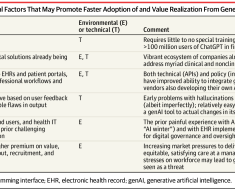Google announced new tools using generative AI for retailers through its Cloud Business on Thursday. The tools will employ the emerging technology to improve online shopping experiences through retailers who use Google Cloud, the technology company said in a press release.
The announcement comes a few days before The National Retail Federation’s Big Show, where retailers and technology vendors will gather to discuss industry trends and test new products.
Google’s new generative AI retail tools
One of the tools is a generative AI-powered chatbot that can be embedded on retail websites and apps. Google refers to the chatbots as virtual agents. It says the chatbots can carry out “helpful and nuanced conversations with shoppers using natural language and can provide product options based on a shopper’s preferences.”
For example, the virtual agent chatbots can give shoppers personalized recommendations. The suggestions might be based on budget, preferred colors, type of event and other factors, according to Google. Retailers can roll out the feature in as little as a few weeks.
Google also introduced a new large language model (LLM) that it says will improve search capability on retailers’ websites. Retailers will be able to customize an LLM based on their product catalog and the shopping patterns of customers. That will improve search results and surface more relevant products for consumers, Google says.
The technology company also debuted an AI tool for customer service operations. Google launched AI customer service agents that can integrate with whatever customer relationship management system a retailer already uses to take on tasks like scheduling appointments or checking order statuses. Retailers can use AI for customer interactions with real agents, too. Google’s tool will use AI to summarize customer service conversations and help agents find relevant internal information to help customers, it says.
“In only a year, generative AI has morphed from a barely recognized concept to one of the fastest-moving capabilities in all of technology and a critical part of many retailers’ agendas,” Carrie Tharp, vice president of strategic industries, Google Cloud, said in a statement. “With the ability to accelerate growth, boost efficiency, fuel innovation, and reduce toil, generative AI solutions are ready to be deployed now, and Google Cloud’s recent innovations can help retailers recognize value in 2024.”
AI and retail
Retailers and technology companies are embracing AI to cut costs and improve customer experiences.
Victoria’s Secret announced a multi-year deal with Google to use the generative AI chatbot on its retail website. The purpose of the deal is to use the tool to make personalized recommendations to Victoria’s Secret customers.
“The integration of Google Cloud’s AI and generative AI technologies will not only improve the online shopping experience for our customers, but also will empower our internal teams to drive innovation across various business functions,” said Chris Rupp, chief customer officer at Victoria’s Secret. “This partnership signifies a new era for Victoria’s Secret & Co., where cutting-edge technology meets our passion for enhancing the customer journey and reinforcing our position as a leader in retail.”
Adore Me, another lingerie brand under the Victoria’s Secret umbrella, has already been using generative AI technology through Google Cloud, the retailer said.
Victoria’s Secret is No. 52 in the Digital Commerce 360 Top 1000, a ranking of North America’s leading retailers by online sales.
AI’s impact in retail is growing. Salesforce says AI influenced 17% of all online orders made in November and December. It also says AI accounted for $194 billion in sales over the holiday season.
Walmart also just announced plans to use AI in new ways at CES. The retailer is adding generative AI-powered search to its app using Microsoft’s Azure OpenAI. A new InHome Replenishment feature will also use AI for Walmart+ members, it said.
Walmart ranks No. 2 in the Top 1000. It also ranks No. 9 among global marketplaces by gross merchandise value.
Do you rank in our databases?
Submit your data and we’ll see where you fit in our next ranking update.
Sign up
Stay on top of the latest developments in the ecommerce industry. Sign up for a complimentary subscription to Digital Commerce 360 Retail News. Follow us on LinkedIn, Twitter and Facebook. Be the first to know when Digital Commerce 360 publishes news content.





